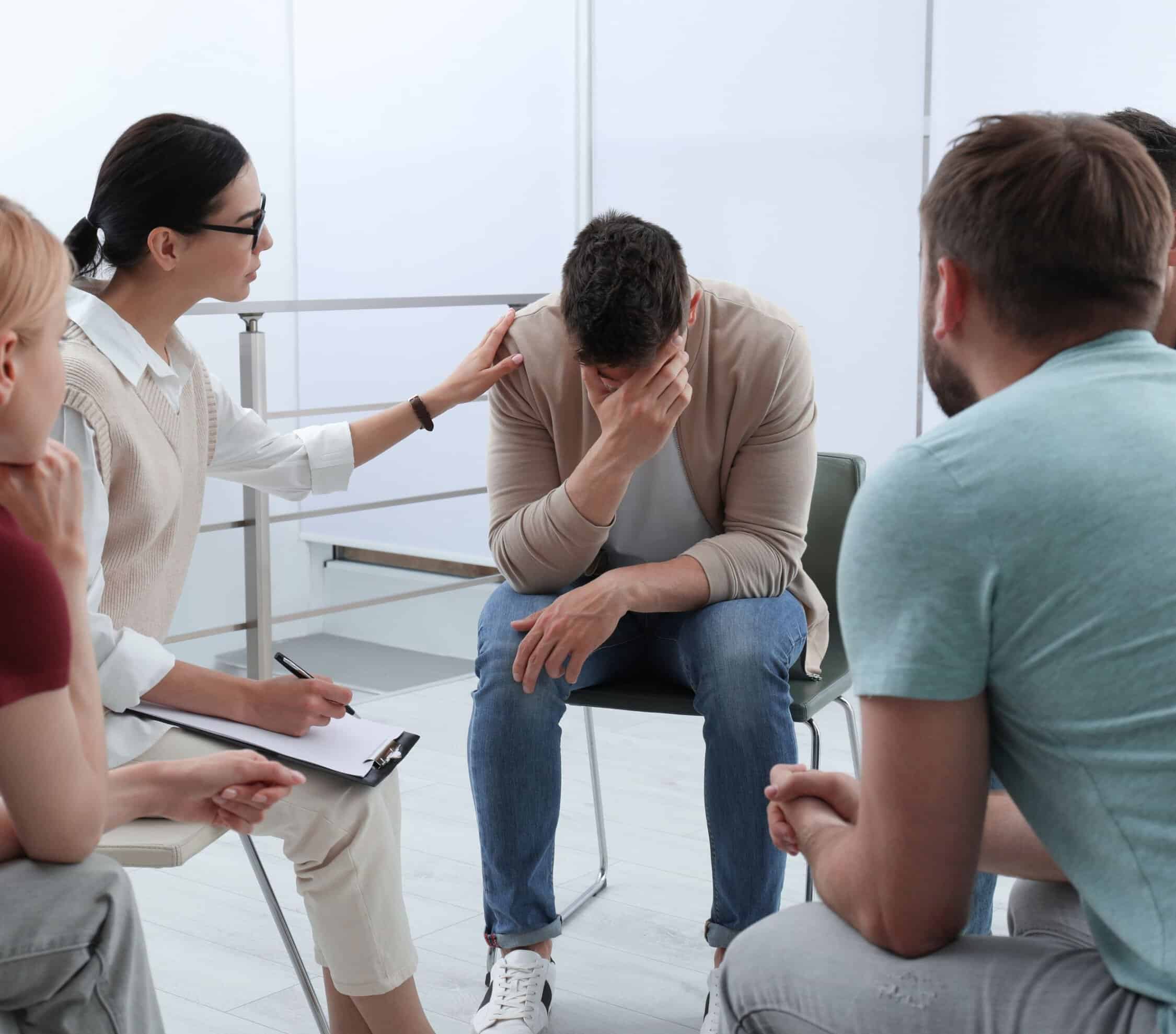Understanding Opioid Addiction
Opioid addiction is a complex and multifaceted condition that severely impacts individuals and their families. Understanding the causes, symptoms, and effects of opioid addiction is essential in addressing this growing public health crisis.
The Nature of Opioids
Opioids are a class of drugs that include prescription pain relievers, such as oxycodone, hydrocodone, morphine, and illegal drugs like heroin and fentanyl. These substances are known for their effective pain-relieving properties, but they also carry a high potential for a substance use disorder. When used as prescribed by a medical professional, opioids can be a valuable tool in pain management; however, misuse can lead to severe physical dependence and substance use disorder.
Causes of Opioid Addiction
Opioid addiction does not occur in isolation but is influenced by a range of risk factors. Identifying these can help in the prevention and early intervention of potential opioid misuse. Common contributing factors include:
Genetic Factors
Research indicates that genetics play a significant role in a person’s susceptibility to opioid addiction. Individuals with a family history of substance abuse disorders may be predisposed to developing an addiction themselves.
Psychological Factors
Mental health disorders such as anxiety, depression, and PTSD are closely linked with an increased risk of opioid addiction. These conditions often lead individuals to self-medicate with opioids in an attempt to manage their symptoms.
Environmental Factors
Environmental influences, including upbringing, social circles, and exposure to drug use, can significantly affect one’s likelihood of becoming addicted to opioids. Peer pressure and a lack of social support are considerable risk factors.


Get The Treatment You Need and Deserve
Elevate Recovery Center stands at the forefront of addiction treatment, demonstrating a track record of effectively supporting long-term recovery. Our dedicated team of renowned clinical and medical professionals excels in addressing addiction, often in conjunction with mental health concerns, to provide personalized care for each individual in our program. Call us – we’re available 24/day, 7 days/week.
Recognizing the Symptoms of Opioid Addiction
Identifying the symptoms of opioid addiction can facilitate timely intervention, like entering an opioid addiction treatment program in Massachusetts. The signs can be both physical and behavioral, and they often become more pronounced as the drug addiction progresses. Common symptoms include:
- Increased tolerance: Over time, individuals need to consume larger amounts of the opioid to achieve the desired effect, indicating increasing tolerance.
- Withdrawal symptoms: Experiencing symptoms such as anxiety, nausea, vomiting, and sweating when not taking the drug is a significant indicator of physical dependence.
- Cravings: Persistent and intense cravings for opioids are a sign of addiction.
- Neglecting responsibilities: Individuals may neglect personal and professional responsibilities, resulting in declining performance and strained relationships.
- Isolation: Withdrawing from social interactions and activities that were once enjoyed is a common behavioral change related to addiction.
- Continued use despite harm: Continuing with opioid use despite understanding the negative consequences, such as health issues or legal problems, highlights a loss of control over the drug use.
- Changes in appearance: Noticeable changes in physical appearance, including weight loss, poor hygiene, and unusual sleep patterns, can indicate opioid misuse.
Early recognition and prompt intervention are crucial in mitigating the damaging effects of opioid addiction and facilitating the road to substance abuse recovery.
The Effects of Opioid Addiction
The impact of opioid addiction extends far beyond the individual, affecting families and communities as a whole. Common effects include:
Physical Health Consequence: Opioid addiction can lead to severe physical health issues, including respiratory depression, a condition where breathing becomes dangerously slow and shallow. Additionally, chronic opioid use is associated with gastrointestinal problems such as constipation and bowel dysfunction. Overdose is a significant risk, potentially resulting in brain damage or death.
Psychological and Emotional Impact: The psychological effects of opioid addiction are profound, often leading to mood swings, depression, and anxiety. Individuals may also experience cognitive impairments, including difficulties with memory and decision-making. Emotional instability can contribute to a higher risk of engaging in self-harm or suicidal behaviors.
Socioeconomic Effects: The socioeconomic repercussions are equally damaging. Individuals struggling with opioid addiction may find it challenging to maintain employment, leading to financial instability and increased reliance on social services. This economic strain can exacerbate the cycle of addiction, creating barriers to seeking and receiving effective opioid addiction treatment.
Family and Social Relationships: Opioid addiction strains family dynamics and social relationships. Trust issues, frequent conflicts, and emotional distress are common as loved ones grapple with the addiction of their family member. Children in affected families may experience neglect or emotional trauma, impacting their development and well-being.
Legal and Criminal Consequences: Legal issues are prevalent among those with opioid addiction, ranging from drug possession charges to theft and other criminal activities driven by the need to obtain the substance. Such legal troubles can result in imprisonment, further complicating recovery efforts and reintegration into society.
Understanding these multifaceted aspects of opioid addiction is essential for developing effective strategies to combat this challenging and pervasive issue.
Treatment Options For Opioid Addiction in Massachusetts
Combating opioid addiction requires a nuanced approach that includes a variety of treatment options to address the unique needs of each individual. Several evidence-based therapies are available to support recovery. Below are the primary opioid addiction treatment program options we offer at our opioid addiction treatment center, along with therapies utilized within these programs.
Detox
Detoxification is the initial step in an opioid addiction treatment program. The process involves medically supervised withdrawal, ensuring that the individual safely overcomes physical dependence on opioids. During detox, medical professionals monitor patients for severe withdrawal symptoms and provide medications and support to mitigate discomfort.
Intensive Outpatient Program
An intensive outpatient program (IOP) offers a structured treatment environment that allows individuals to continue living at home while receiving comprehensive care. This type of opioid addiction treatment program provides a higher level of support than standard outpatient programs (but less intensive than a partial hospitalization program). It typically includes multiple therapy sessions per week, along with access to group therapy, education, and skill-building activities.
Standard Outpatient Addiction Treatment Program
Standard outpatient programs (OP) provide flexible opioid addiction treatment that can be tailored to the individual’s schedule. These programs generally involve regular individual therapy, group therapy, family therapy, and educational components. Standard OPs are ideal for individuals who have a strong support system and are motivated to maintain their recovery independently.
Dual-Diagnosis Opioid Addiction Treatment Programs
Dual-diagnosis treatment addresses both opioid addiction and co-occurring mental health disorders. This integrated approach ensures that patients receive comprehensive care for all aspects of their health, considering that untreated mental issues can often contribute to substance use.
Medication-Assisted Treatment Program
Medication-assisted treatment (MAT) combines the use of FDA-approved medications, such as methadone, buprenorphine, and naltrexone, with counseling and behavioral therapies. MAT has been shown to be effective in reducing opioid use, improving treatment retention, and supporting long-term recovery.
12-Step Treatment Program
The 12-step program, popularized by groups like Narcotics Anonymous (NA), offers a community-based approach to recovery. This drug rehab program involves working through twelve steps that promote personal growth, accountability, and spiritual development, supported by regular group meetings.
Interventions for Opioid Addiction Treatment
Interventions are structured conversations led by a professional interventionist to encourage the individual to seek treatment. Family and friends participate in these sessions to present a united front, expressing concerns and the impact of the addiction on their lives.
We also offer holistic therapies as part of our opioid addiction treatment program in Massachusetts.
Therapies Used in an Opioid Addiction Treatment Program Massachusetts
Various therapeutic modalities are employed in opioid addiction treatment centers in Massachusetts center to address the multifaceted nature of the disorder.
Cognitive Behavioral Therapy
Cognitive behavioral therapy (CBT) is a cornerstone in addiction treatment, helping individuals identify and change negative thought patterns and behaviors that contribute to substance use. Through CBT, patients learn coping strategies and problem-solving skills to manage triggers and prevent relapse.
Dialectical Behavior Therapy
Dialectical behavior therapy (DBT) combines cognitive-behavioral techniques with mindfulness practices. It is especially effective for individuals struggling with emotional regulation and interpersonal conflicts, providing tools to navigate stressful situations without resorting to substance use.
Motivational Interviewing
Motivational interviewing (MI), sometimes called motivational enhancement therapy, is a counseling approach that enhances an individual’s motivation and commitment to change. Through MI, therapists work collaboratively with patients to explore their values and goals, helping them to resolve ambivalence about substance abuse treatment and recovery.
Internal Family Systems
Internal family systems (IFS) therapy addresses the complex interplay between different parts of an individual’s psyche. By understanding and harmonizing these internal “family members,” patients gain insights into how their thoughts and emotions drive addictive behaviors, fostering deeper healing and recovery.
Each opioid addiction treatment option and therapeutic intervention is designed to address the specific needs of those affected by opioid drug abuse, ensuring a holistic and effective recovery process.
Contact Elevate Recovery to Discuss Opioid Addiction Treatment Program Massachusetts
If you or a loved one is struggling with a substance use disorder, it is crucial to seek professional help. Our treatment center offers a comprehensive opioid addiction treatment program designed to address both physical and mental health needs, ensuring a well-rounded approach to recovery.
By addressing the complexities of opioid addiction, we aim to help our patients regain control of their lives and improve their everyday functioning. Contact Elevate Recovery today to discuss how our opioid addiction treatment program in Massachusetts can help you recover and improve your everyday life. Fill out our online form or call us at (877) 592-2102.





